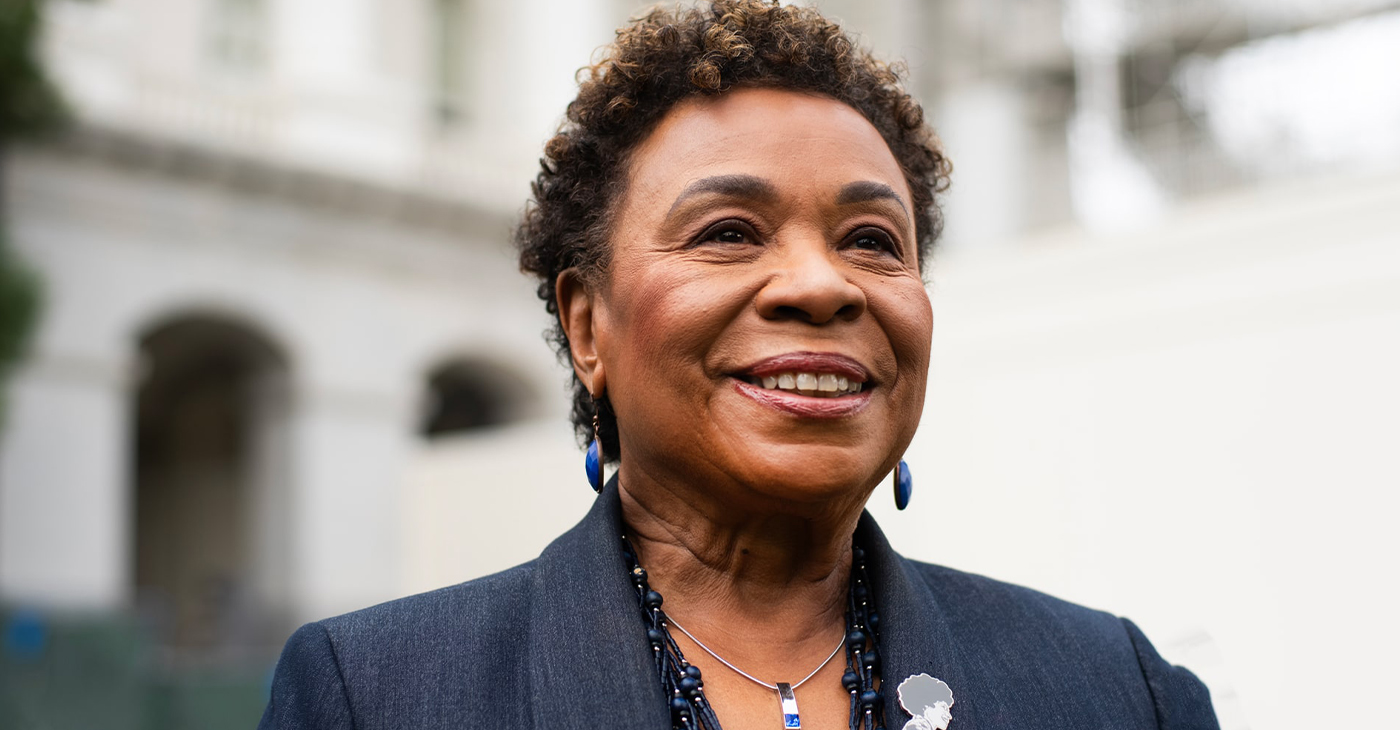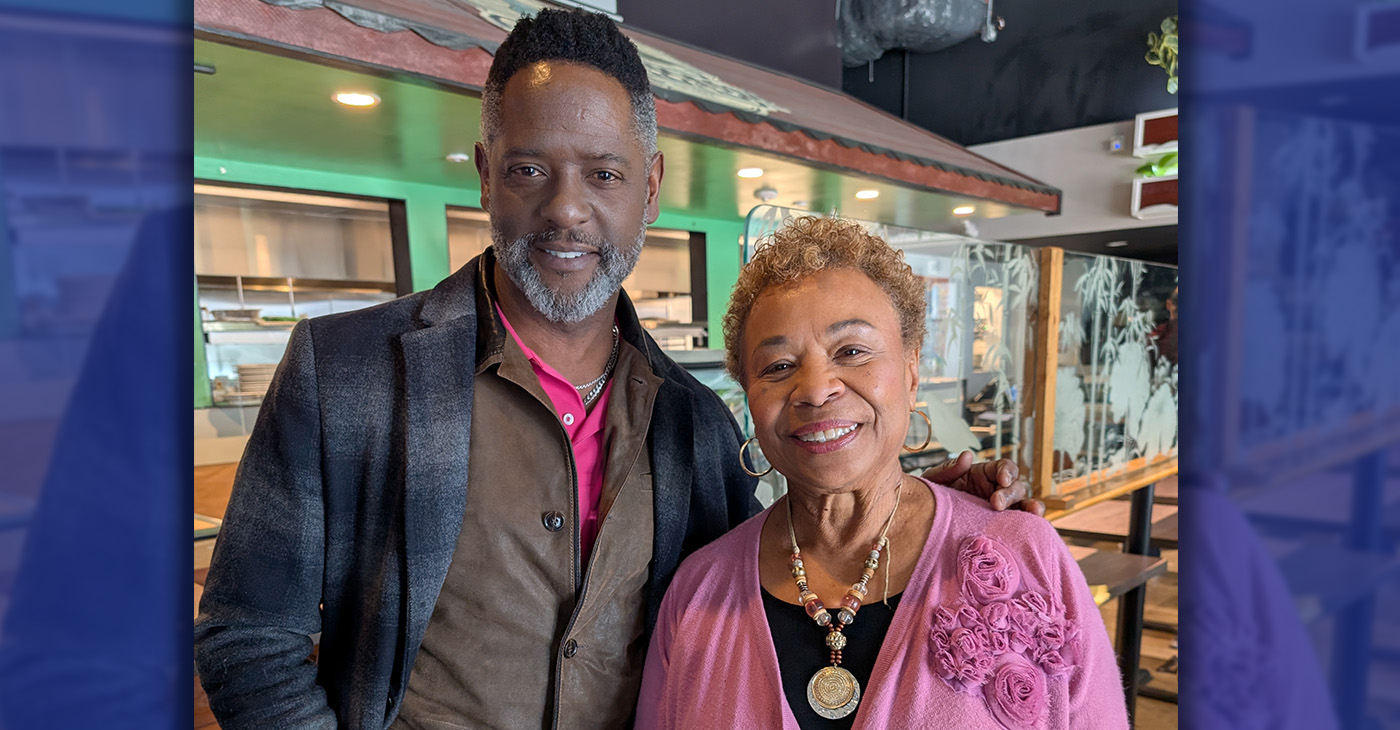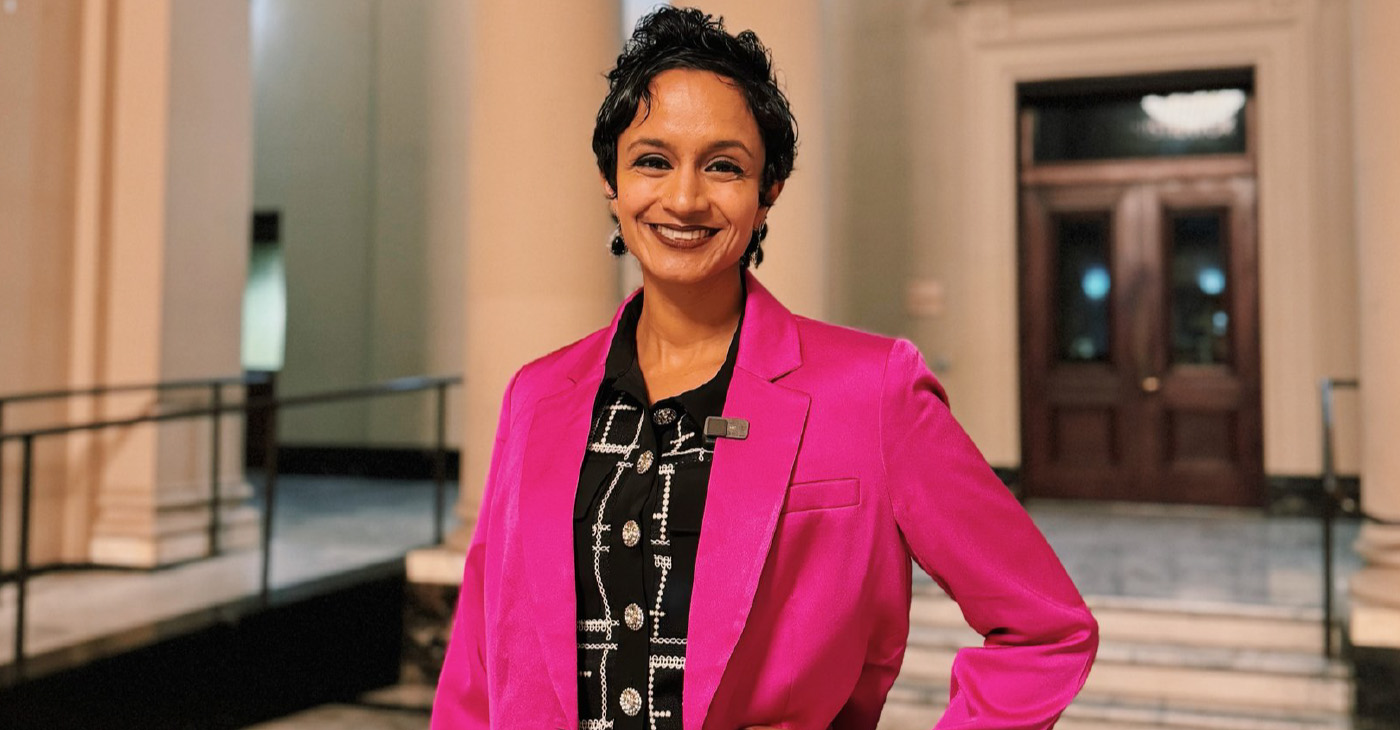Op-Ed
Child Watch: Clamoring to Enter Housing’s Poor Door
By Marian Wright Edelman
NNPA Columnist
More than 88,000 people have applied to enter the “poor door” at a new luxury condominium tower on the Upper West Side of Manhattan. Only one in 1,600 will win the lottery to live there.
Some months ago a New York developer made headlines with the plans for this building, which takes advantage of zoning rules encouraging affordable housing by including some low-priced rental units along with the luxury condos for sale. A separate entrance for the people living in the low-income apartments continues with segregated living inside. Low-income tenants won’t be allowed to use the pool, gym, private theater, or any of the other amenities reserved for the wealthy owners.
Critics immediately pounced on this design as a modern-day form of Jim Crow. But the need for affordable housing is so overwhelming that when the deadline came this month to participate in a lottery for the spots behind the “poor door,” tens of thousands applied. Meanwhile, The New York Times reports that most of the 219 luxury condos on the other side of the building have sold, some for more than $25 million.
The contrast between the haves and have-nots might be especially stark at that New York building, but millions of families across the country are finding themselves on the wrong side of the poor door. Housing is the single largest expense for most families and for far too many is growing increasingly out of reach. The number of families with worst-case housing needs increased from 6 million in 2007 to 8.5 million in 2011, including 3.2 million families with children, and the number of homeless public school students was 85 percent higher in 2012-2013 than before the recession.
Ayriq Sims has been one of those students. He and his siblings spent their childhood bouncing between unstable living arrangements, extended stays at relatives’ homes, and homeless shelters. Even when Ayriq’s family had somewhere to stay, he remembers all the times their lights and water were turned off, or when he went hungry because he’d made his younger siblings something to eat but there wasn’t enough food left for him to eat, too. Through it all Ayriq stayed committed to excelling in school and winning an academic scholarship to Ohio State University. But even this year, his senior year in high school and on his way to college, he found himself homeless again. Ayriq says: “I don’t want to be homeless again. I don’t want that to be who I am.”
The Children’s Defense Fund honored Ayriq with a scholarship for overcoming tremendous odds. Homelessness and housing instability can have serious, negative consequences on children’s emotional, cognitive, and physical development, academic achievement, and success as adults. Federal rental assistance, including public housing and vouchers for private rentals, helps about 5 million of the neediest low-income households afford a place to live. But because of funding limitations only about 1 in 4 needy families with children receives assistance.
To add insult to injury, the Republican House and Senate budgets are proposing severe cuts to already inadequate and desperately needed housing subsidies. The White House estimates that compared to the president’s budget proposal, the Republican House budget would cut housing vouchers for 133,000 families and housing assistance for 20,000 rural families. This is on top of the 2013 sequestration cuts that led to 100,000 fewer families receiving assistance by June 2014.
The Urban Institute found that providing enough housing subsidies to serve eligible families would reduce child poverty by 20.8 percent and lift 2.3 million children out of poverty. More than 2.5 million more households would receive a subsidy, worth an average of $9,435. We could easily pay for this housing subsidy expansion by making fairer and common sense reforms to close corporate accounting tax loopholes, saving $58 billion a year. Or if we had more responsible and more just members of Congress on both sides of the aisle, instead of repealing the estate tax which amounts to a $27 billion a year giveaway to the 5,400 ultra-wealthy estates worth over $5.4 million — in the top two-tenths of 1 percent — as the Senate and House both voted to do, we could invest the $24 billion a year needed to ensure poor and near-poor children a chance to grow up in a stable place to call home.
Instead of making extraordinary students like Ayriq struggle to beat the odds every day we should be taking common sense and essential steps like this to change the odds. The stories about the tens of thousands of people seeking entry in New York’s “poor door” are an urgent reminder of the need for more affordable housing across our country. Cutting back on already inadequate help to those most in need to give more tax welfare subsidies to those least in need is not the answer and is profoundly unjust. Families should not have to win a lottery to live in segregation just to get a roof over their heads.
Marian Wright Edelman is president of the Children’s Defense Fund whose Leave No Child Behind® mission is to ensure every child a Healthy Start, a Head Start, a Fair Start, a Safe Start and a Moral Start in life and successful passage to adulthood with the help of caring families and communities. For more information go to www.childrensdefense.org.
###
Activism
Oakland Post Endorses Barbara Lee
Barbara Lee will be able to unify the city around Oakland’s critical budget and financial issues, since she will walk into the mayor’s office with the support of a super majority of seven city council members — enabling her to achieve much-needed consensus on moving Oakland into a successful future.

As we end the celebration of Women’s History Month in Oakland, we endorse Barbara Lee, a woman of demonstrated historical significance. In our opinion, she has the best chance of uniting the city and achieving our needs for affordable housing, public safety, and fiscal accountability.
As a former small business owner, Barbara Lee understands how to apply tools needed to revitalize Oakland’s downtown, uptown, and neighborhood businesses.
Barbara Lee will be able to unify the city around Oakland’s critical budget and financial issues, since she will walk into the mayor’s office with the support of a super majority of seven city council members — enabling her to achieve much-needed consensus on moving Oakland into a successful future.
It is notable that many of those who fought politically on both sides of the recent recall election battles have now laid down their weapons and become brothers and sisters in support of Barbara Lee. The Oakland Post is pleased to join them.
Activism
Actor, Philanthropist Blair Underwood Visits Bay Area, Kicks Off Literacy Program in ‘New Oakland’ Initiative
These community activations were coordinated with the San Francisco-based non-profit program “Room to Read.” Ray said he is also donating his time to read and take pictures with students to encourage their engagement and to inspire them to read more. The inspirational book “Clifford Ray Saves the Day” highlights Clifford Ray’s true story of saving a dolphin.

By Paul Cobb
New Oakland Series
Opinion Part 3
The Post mentioned three weeks ago that a number of our local luminaries were coming together to support the “New Oakland” movement. As this current national administration continues to eliminate our “legacy” institutional policies and programs left and right, most communities find themselves beyond “frozen” in fear.
Well, esteemed actor, long-time Bay Area supporter, and philanthropist Blair Underwood returned to Oakland this week to speak with city leaders, community trust agents, students, the Oakland Post, and local celebrities alike to continue his “New Oakland” initiative.
This week, he kicked off his “Guess Who’s Coming to Read” literacy program in some of Oakland’s middle schools. Clifford Ray, who played the center position of the 1975 World Champion Golden State Warriors, donated close to 1,000 books. Ray’s fellow teammate Charles “The Hopper” Dudley also gave Converse sneakers to students.
These community activations were coordinated with the San Francisco-based non-profit program “Room to Read.” Ray said he is also donating his time to read and take pictures with students to encourage their engagement and to inspire them to read more. The inspirational book “Clifford Ray Saves the Day” highlights Clifford Ray’s true story of saving a dolphin.
Underwood also spent quality time with the Oakland Ballers ownership group and visited the amazing Raimondi Park West Oakland community revitalization site. In the 1996 TV film Soul of the Game, Underwood played the role of the legendary first Black Major League Baseball player Jackie Robinson and commended the Ballers owners.
“This group of sports enthusiasts/ philanthropists needs to be applauded for their human capital investment and their financial capital investment,” Underwood said. “Truly putting their money and passion to work,” Underwood said.
Underwood was also inspired by mayoral candidate Barbara Lee’s open-minded invitation to bring public-private partnership opportunities to Oakland.
Underwood said he wants to “reinforce the importance of ‘collaborative activism’ among those most marginalized by non-empathic leadership. We must ‘act out’ our discomfort with passionate intentions to create healthy change.”
Activism
Councilmembers Ramachandran, Kaplan, Unger Identify Funds to Save Oakland Fire Stations
Our budget crisis – one of the worst in Oakland’s history – is compounded by the fact that people do not feel safe coming to Oakland due to our public safety crisis. By investing in our fundamental public safety resources today, we can send a signal to the world that Oakland is open for business. We have such a rich and vibrant culture, arts, and food scene that is worth celebrating – but we can only showcase this if we are able to keep our neighborhoods safe. Having fully functioning fire stations are absolutely essential to these efforts.

By Janani Ramachandran
There is no greater concern to the people of Oakland today than public safety. Fire stations are the bread and butter of essential city services – and every day that we have stations shuttered, we imperil the lives of our community members. In response to widespread outcry over the current and planned closure of stations, myself, along with Councilmembers Kaplan and Unger, have painstakingly worked to identify millions of dollars of new funding to save our stations. The legislation we introduced on Thursday, February 13th, will amend our budget to prevent the closure of four fire stations that are currently on the chopping block due to our budget crisis and will re-open two closed stations that have already been closed – Station 25 and 28 – in the near future. The resolution that will provide the funding to keep our stations open will go before the full City Council for a vote at our meeting on Tuesday, March 4th at 3:30 PM – and we invite you to join us at City Hall to share your perspective on the topic.
Our budget crisis – one of the worst in Oakland’s history – is compounded by the fact that people do not feel safe coming to Oakland due to our public safety crisis. By investing in our fundamental public safety resources today, we can send a signal to the world that Oakland is open for business. We have such a rich and vibrant culture, arts, and food scene that is worth celebrating – but we can only showcase this if we are able to keep our neighborhoods safe. Having fully functioning fire stations are absolutely essential to these efforts.
With the devastating Los Angeles fire at the top of people’s minds, terrible memories of Oakland’s own wildfires are re-surfacing from the 1991 Oakland Hills Firestorm to the Keller fire just a few months ago – and how essential fire stations are to mitigating these catastrophes. But in Oakland, our fire stations don’t just fight wildfires – they also provide emergency medical services to our most vulnerable constituents, put out structural fires and encampment fires, and much more.
We recognize that there are a number of competing interests and important initiatives fighting for sparse City resources. But from my perspective, core safety services are the most pivotal functions that a City must spend its resources on – especially given the outcry we have heard around fire stations.
The fight to save our stations is not over. The resolution we introduced is a critical first step, and there are hurdles to overcome. If you support keeping our fire stations open, we invite you to be a part of the solution by making your voice heard at the March 4th City Council meeting at 3:30 pm.
-

 Activism2 weeks ago
Activism2 weeks agoWe Fought on Opposite Sides of the Sheng Thao Recall. Here’s Why We’re Uniting Behind Barbara Lee for Oakland Mayor
-

 #NNPA BlackPress2 weeks ago
#NNPA BlackPress2 weeks agoRev. Dr. Jamal Bryant’s Black Church Target Boycott Mobilizes 150,000
-

 Activism4 weeks ago
Activism4 weeks agoOakland Post: Week of March 5 – 11, 2025
-

 Activism3 weeks ago
Activism3 weeks agoSan Francisco Is Investing Millions to Address Food Insecurity. Is Oakland Doing the Same?
-

 #NNPA BlackPress4 weeks ago
#NNPA BlackPress4 weeks agoTrump Moves to Dismantle Education Department
-

 #NNPA BlackPress2 weeks ago
#NNPA BlackPress2 weeks agoRecently Approved Budget Plan Favors Wealthy, Slashes Aid to Low-Income Americans
-

 #NNPA BlackPress4 weeks ago
#NNPA BlackPress4 weeks agoFighting to Keep Blackness
-

 Activism2 weeks ago
Activism2 weeks agoFaith Leaders Back Barbara Lee for Mayor, Criticize Candidate Loren Taylor for Dishonest Campaigning




















































